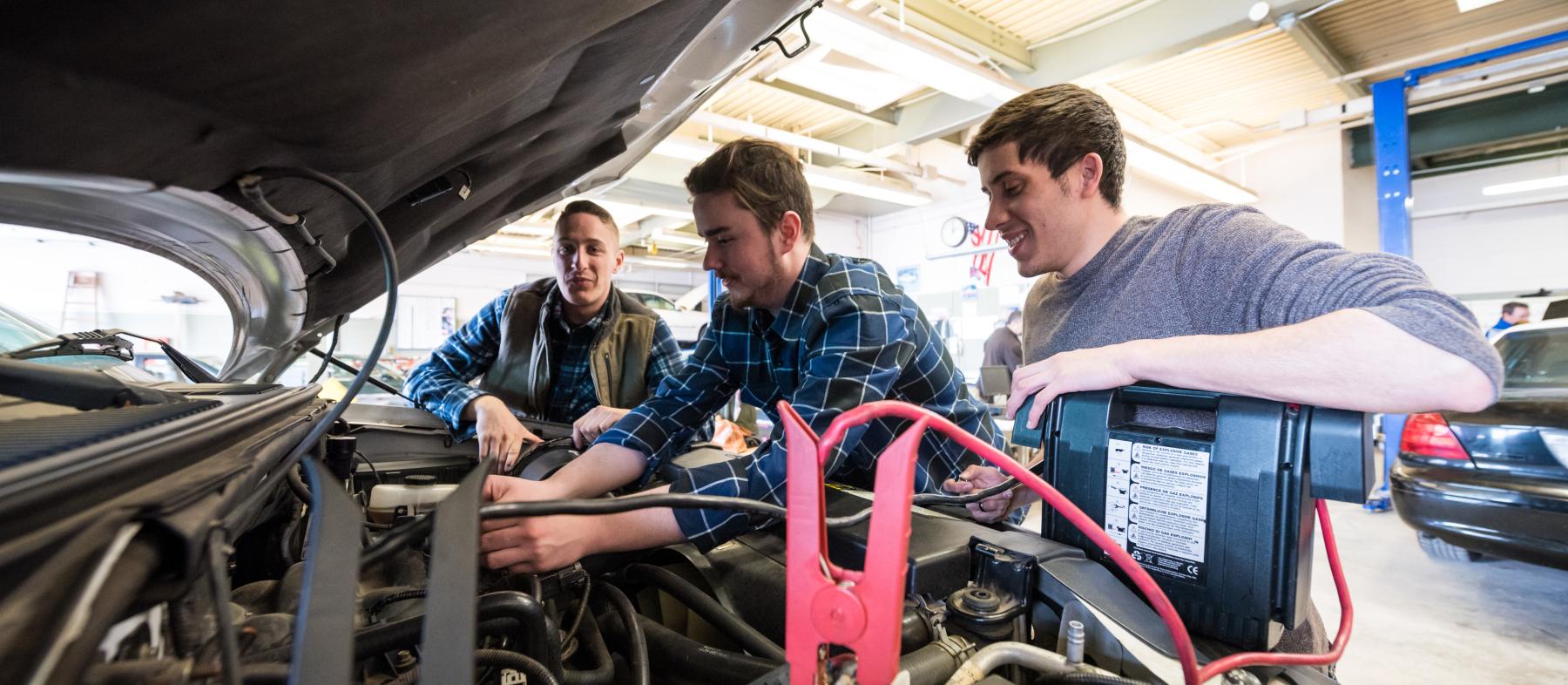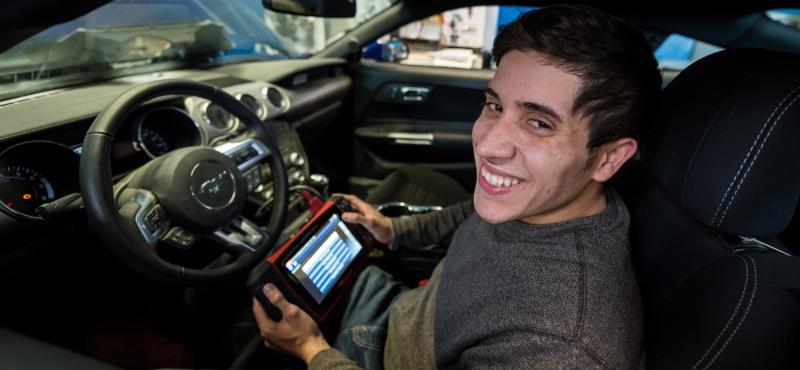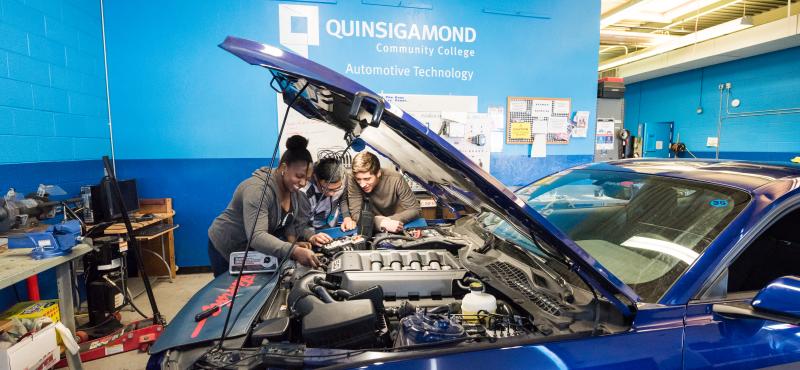Program Goals:
The Automotive Technology associate degree program is designed to prepare students to become professional automotive technicians and fill the need of area dealerships and independent repair facilities. The program trains students in all eight areas of automotive repair to prepare students to become ASE Master Technicians. The program builds a foundation of knowledge allowing graduates to adapt to new technology and grow as an employee. The program also provides the opportunity to transfer to a bachelor’s degree program in a related field of study.
Student Learning Outcomes:
Upon completion of the program, graduates will be able to:
- Diagnose and repair components of the electrical and electronic systems.
- Diagnose and repair automotive engine and power transmission systems.
- Diagnose and repair components of the steering and suspension systems.
- Diagnose and repair components of hydraulic and anti-lock brake systems.
- Diagnose and repair components of the climate control system.
- Diagnose and repair electronic power-train control systems.
- Sit for the ASE Master Technician certification examinations.
- Adapt to new technology and service procedures as they are developed, and thus, build a professional foundation in all aspects of automotive systems and service techniques.
- Grow as an automotive technician, moving up the career ladder.
Admissions Process:
Admissions inquiries should be directed to admissions@qcc.mass.edu. Prospective students may apply to the program of their choice by following the enrollment steps at www.QCC.edu/enrollment-steps.
- Enrollment in Automotive Technology programs is restricted to 20 full-time students per academic year on a first-come, first-served basis, beginning each Fall semester.
Program Admissions Requirements:
Students should note that some first semester courses carry minimum prerequisites. Refer to the program grid.
- High School Diploma or GED/HiSET.
CORI, SORI, Finger Printing & Drug Testing:
Criminal Offender Record Information (CORI) and Sex Offender Registry Information (SORI) checks are not required. Fingerprinting and drug testing are not required.
- Applicants should be aware that some employers may require CORI/SORI checks, fingerprinting, and drug testing as part of the hiring process.
Additional Cost:
See the Program Fees page.
- Students enrolled in AUT 299 may incur an additional expense for professional liability insurance.
- Students are responsible for the purchase of tools prior to enrollment in AUT 299 and/or employment.
Technical Performance Standards:
See the Technical Performance Standards page. (Note: Not all programs have technical performance standards).
Credit for Prior Learning:
Credit for Prior Learning (CPL) allows students to use skills they already have towards a college degree or certificate. Work, life, volunteer and military experience may be translated into credit, allowing students to take fewer classes and earn their degree faster. CPL eliminates redundancies for students who have already earned credentials or mastered skills required for their program of study. Email experience@qcc.mass.edu for more information and eligibility.
Career Outlook:
Please consult the Massachusetts Career Information System at https://masscis.intocareers.org/ or the Occupational Outlook Handbook at www.bls.gov/ooh/ for specific occupational information. The CIP code for this program is 47.0604.
Transfer Articulations & Opportunities:
Prospective students may learn more about transfer articulation agreements at www.QCC.edu/agreements. More information regarding transfer opportunities is available at www.QCC.edu/transfer.
Additional Information:
- Applicants should be aware that some employers may require CORI/SORI checks, fingerprinting, and drug testing as part of the hiring process.
- Applicants to this program must have a valid learner’s permit and a driving record that is suitable for prospective employer’s insurance requirements. A Request for Driving Record will be forwarded to the MA Department of Transportation on behalf of each student accepted to the program each Fall semester.
- Students should note that a valid driver’s license will be required for employment in this field; individuals with driving and/or legal infractions should be aware that their actions may impact their employability.
- Students may earn NC3: Multimeter Certification (EEDM504D).
- Students may earn credits from Subaru University by completing online training.



